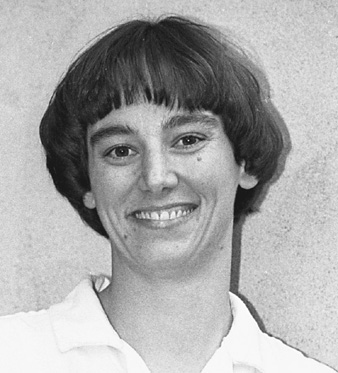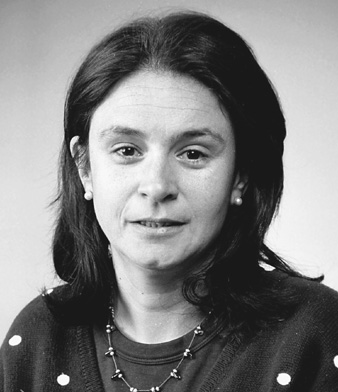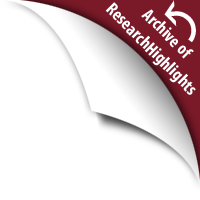
Women faculty feel the POWRE wth NSF grants

 Ellen Lackey and Laura Razzolini knew an opportunity when they saw it. Lackey saw it when she thought about a new piece of equipment. Razzolini saw it when she considered a new facility on campus. Both turned those opportunities into successful applications to the National Science Foundation’s Professional Opportunities for Women in Research and Education (POWRE). POWRE supports women who have identified opportunities that will enhance their professional advancement but that would not ordinarily be available through regular research and education proposals. Often, these opportunities enable awardees to secure access to special facilities or new skills, to conduct exploratory work in a new line of research, to collaborate with a colleague or institution abroad, or to attract external support at a transitional career stage (such as after a career interruption or after a stint at a major administrative post). The overall aim of POWRE is to increase opportunities for women scientists or engineers who are U.S. citizens, nationals, or permanent residents to work toward leadership roles in their fields, especially in contexts in which women are underrepresented. Key to a successful proposal to POWRE is the communication of the “opportunistic” nature of the project. In other words, the applicant must be able to frame her proposed work in the context of having a chance to do something that wouldn’t be funded through ordinary means.
Ellen Lackey and Laura Razzolini knew an opportunity when they saw it. Lackey saw it when she thought about a new piece of equipment. Razzolini saw it when she considered a new facility on campus. Both turned those opportunities into successful applications to the National Science Foundation’s Professional Opportunities for Women in Research and Education (POWRE). POWRE supports women who have identified opportunities that will enhance their professional advancement but that would not ordinarily be available through regular research and education proposals. Often, these opportunities enable awardees to secure access to special facilities or new skills, to conduct exploratory work in a new line of research, to collaborate with a colleague or institution abroad, or to attract external support at a transitional career stage (such as after a career interruption or after a stint at a major administrative post). The overall aim of POWRE is to increase opportunities for women scientists or engineers who are U.S. citizens, nationals, or permanent residents to work toward leadership roles in their fields, especially in contexts in which women are underrepresented. Key to a successful proposal to POWRE is the communication of the “opportunistic” nature of the project. In other words, the applicant must be able to frame her proposed work in the context of having a chance to do something that wouldn’t be funded through ordinary means.
For Ellen Lackey, Assistant Professor of Mechanical Engineering, that meant, for the most part, having a new piece of equipment that would allow her to try out a new technique. The new filament winder she bought through her POWRE award (starting date September 1998) is being used to perform some exploratory work necessary to demonstrate the feasibility of processing polymeric composites through combining two technologies, ultraviolet and thermal cure processes. The work builds on Lackey’s earlier research, making the most of what she has already done but extending it into directions new for Lackey and new for the field.
Laura Razzolini, Assistant Professor in Economics, proposed support that would allow her to make the most, the soonest, of the Mississippi Experimental Research Laboratory (MERL), which had only recently been created when Razzolini submitted her proposal during the December 98 competition. Razzolini uses MERL to conduct experiments to determine what cost sharing and rationing mechanisms come into play when resources are limited. Razzolini’s previous work, like the other work in that field, had been theoretical. The POWRE award is allowing her to make a move into testing the theory.
Lackey, in discussing her successful proposal, stresses the fact that what she proposed for POWRE would not have been appropriate for another program. POWRE awards are limited to $75,000 for, at most, an 18-month project. The amount of work you can accomplish in that time frame and at that funding level must be accurately predicted. This successful proposal, in fact, was Lackey’s second submission to POWRE. The first had come close, but at least one reviewer remained unclear about how she would accomplish her work. Lackey’s response was to use tables to clarify her timeline, offering a “step-by-step guide” to the work she planned. The science and methodology didn’t change; Lackey’s presentation of it did.
Razzolini’s success may well be based on some preparation she did before submitting: she contacted a number of people who had received awards in the past or served on review panels in the past, asking for their advice. At least one former reviewer recommended carefully tailored language for describing the opportunity. For example, Razzolini says, she was urged to use words like “re-tool” when talking about the skills she hoped to pick up during the POWRE period. Additional skills, she thinks, are good to talk about, but “don’t make it sound as though you’re picking up what you should have picked up in graduate school.” “New toolbox” is a term Razzolini’s source used as an example of POWRE-friendly language. Lackey was equally careful with the language she used. She talks about having “research opportunities to work with companies and to expand the scope of my research.” Lackey’s preparation for POWRE involved, she says, “reading everything on the web” about POWRE. The message was clear: be specific about the impact on your career development and the expansion of your research.
Razzolini believes that POWRE is attracted to proposals with a “risky, promising direction, with potential for quick pay-offs.” She suggests that interested applicants look for “something different that’s happening,” something that would send their research in a new direction and provide what Razzolini calls “a good excuse” for asking for POWRE money. Lackey thinks that one reason she succeeded with POWRE is that there hasn’t yet been much academic research interest in the technique she’s exploring, although various companies were willing to participate. She had the opportunity, then, for both technology/knowledge transfer and for moving into an academically fresh field.
There is a sense that POWRE likes to fund visits to other institutions, although as Razzolini’s and Lackey’s awards suggest POWRE clearly is willing to fund good projects to be carried out at home institutions, if opportunity exists at home. And, although both current UM POWRE awardees are assistant professors, the awards are not at all restricted to that level. In fact, women in more advanced ranks are strongly encouraged to apply, if they are able to project a re-direction for their research.
Lackey and Razzolini both seem pleased with how their awards are going. Lackey says that one company has already expressed an interest in perhaps sponsoring some research based on what she is doing through POWRE. Plus, at the time of her award, she was encouraged by NSF program officers to submit a separate REU Supplement application. The REU (Research Experiences for Undergraduates) is funding the involvement of two students this semester, and Lackey now has a graduate student active on the project as well. Razzolini has just hired a research assistant, and the award also bought her some time, some summer funding, some travel, and a computer. The keys to POWRE would seem to be, first, seeing an opportunity; second, contextualizing it so that others see it the same way; and, finally, making the most of it.

 Ellen Lackey and Laura Razzolini knew an opportunity when they saw it. Lackey saw it when she thought about a new piece of equipment. Razzolini saw it when she considered a new facility on campus. Both turned those opportunities into successful applications to the National Science Foundation’s Professional Opportunities for Women in Research and Education (POWRE). POWRE supports women who have identified opportunities that will enhance their professional advancement but that would not ordinarily be available through regular research and education proposals. Often, these opportunities enable awardees to secure access to special facilities or new skills, to conduct exploratory work in a new line of research, to collaborate with a colleague or institution abroad, or to attract external support at a transitional career stage (such as after a career interruption or after a stint at a major administrative post). The overall aim of POWRE is to increase opportunities for women scientists or engineers who are U.S. citizens, nationals, or permanent residents to work toward leadership roles in their fields, especially in contexts in which women are underrepresented. Key to a successful proposal to POWRE is the communication of the “opportunistic” nature of the project. In other words, the applicant must be able to frame her proposed work in the context of having a chance to do something that wouldn’t be funded through ordinary means.
Ellen Lackey and Laura Razzolini knew an opportunity when they saw it. Lackey saw it when she thought about a new piece of equipment. Razzolini saw it when she considered a new facility on campus. Both turned those opportunities into successful applications to the National Science Foundation’s Professional Opportunities for Women in Research and Education (POWRE). POWRE supports women who have identified opportunities that will enhance their professional advancement but that would not ordinarily be available through regular research and education proposals. Often, these opportunities enable awardees to secure access to special facilities or new skills, to conduct exploratory work in a new line of research, to collaborate with a colleague or institution abroad, or to attract external support at a transitional career stage (such as after a career interruption or after a stint at a major administrative post). The overall aim of POWRE is to increase opportunities for women scientists or engineers who are U.S. citizens, nationals, or permanent residents to work toward leadership roles in their fields, especially in contexts in which women are underrepresented. Key to a successful proposal to POWRE is the communication of the “opportunistic” nature of the project. In other words, the applicant must be able to frame her proposed work in the context of having a chance to do something that wouldn’t be funded through ordinary means.
